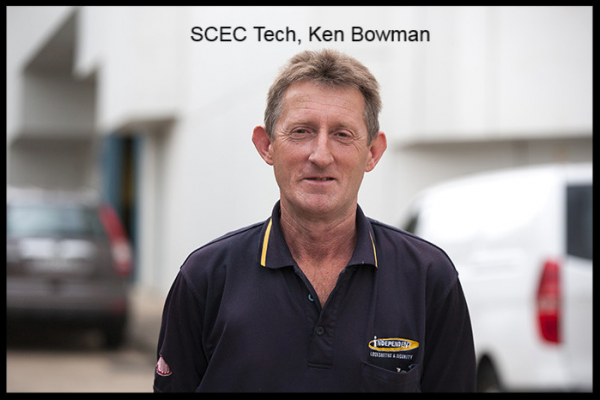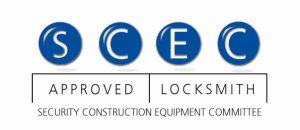
Understanding SCEC and the role of SCEC Approved Locksmiths
The Security Construction and Equipment Committee (SCEC) is a standing interdepartmental committee responsible for evaluating security equipment for use by Australian Government departments and agencies.
The SCEC Approved Locksmith is endorsed by the Australian government to work on security-classified equipment and within high-security zones of government departments and agencies. These locksmiths are qualified to install, service and maintain mechanical and digital combination locks fitted to SCEC-approved containers. They may also be called upon to fit locks and associated hardware to doors and windows in government security zones.
To gain endorsement, locksmiths must meet rigorous standards of integrity, honesty, and confidentiality expected of personnel working for or on behalf of the Australian Government.
The SCEC Process
Before any security work begins, a risk assessment is conducted by a Department Security Advisor or a SCEC Consultant. The site is rated, and a scope of works is developed to bring the site up to the appropriate security classification. This scope is then passed to a SCEC Endorsed Locksmith for implementation.
Protective Security Advice
ASIO-T4 provides an ongoing specific advisory service for Government clients, on how best to protect their people, information, and physical assets. This advice is tailored to address individual and specific requirements.
SCEC Security Equipment Ratings
SCEC classifies security equipment using Security Level (SL) ratings from SL1 to SL4 – applying a “Good, Better, Best” methodology:
SL4 – High Risk – Attackers are assumed to be highly professional, with the ability to resource and implement a physical/technical attack in detail. Attackers will have a high level of expertise and will be equipped with specialist tools and equipment. Products classified at this level will offer substantial resistance against a large range of specialist attack methods for extended periods.
SL3 – Medium Risk – Attackers are expected to be highly capable of using a comprehensive range of non-specialist tools and equipment at their disposal. Products classified at this level will offer moderate resistance to a range of specialist attack methods for reasonable periods.
SL2 – Low to Medium Risk – Attackers are expected to have limited knowledge, and will have a general range of non-specialist tools and equipment. Products classified at this level will offer moderate resistance against non-specialist attacks for limited periods.
SL1 – Low Risk – Attackers have minimal skills and access to only basic tools or equipment. Products classified at this level will offer minor resistance against any attacks for very short periods.
It’s important to note that Security classifications apply not just to locks, but to the entire surrounding infrastructure. Compliance may require upgrades to doors, door frames, hinges, walls, ceilings, air-conditioning ducts, alarm systems, and audited access control. Once the scope of works has been established and provided, a specially licensed SCEC Locksmith can now provide and install the required door hardware for you.
SCEC Endorsed Locksmiths
All security works must be carried out by a licensed “SCEC Endorsed” Locksmith – a professional who has completed rigorous ASIO/T4 training, undergone national security vetting, and holds the appropriate license.
Independent’s SCEC-Qualified Team
At Independent Locksmiths & Security, we have four SCEC Approved Locksmith Technicians, along with our General Manager of Locksmithing, Sean McGovern, who leads the team. We provide professional advice on the installation of SCEC-endorsed security products in full compliance with the latest SCEC protocols. Our services cov er:
- Perimeter and internal security
- SCEC-compliant locks and containers
- Access control systems
- CCTV and alarms
- Locks and other door hardware
- Construction of new buildings
- Security zone construction
- Guarding arrangements
- Security audits and risk assessments
Duration of Coverage
SCEC endorsed security hardware must be tested, maintained, and serviced, by SCEC endorsed locksmiths at intervals not exceeding two years. Failure to comply with these requirements may result in the loss of SCEC endorsement.
Specific Locking Requirements
There are numerous gradings and user-specific requirements. It is not just about what lock is used, but how it is installed, and the infrastructure and supporting hardware used to support it. As this is such a highly specialised area, we work with clients on a detailed scope of works, ensuring every element meets or exceeds government security expectations.
SCEC security requirements are among the most demanding in the world. Choosing the right team is essential to ensure full compliance and peace of mind. If your site requires government-approved security solutions, get in touch with our SCEC team at Independent Locksmiths & Security.

